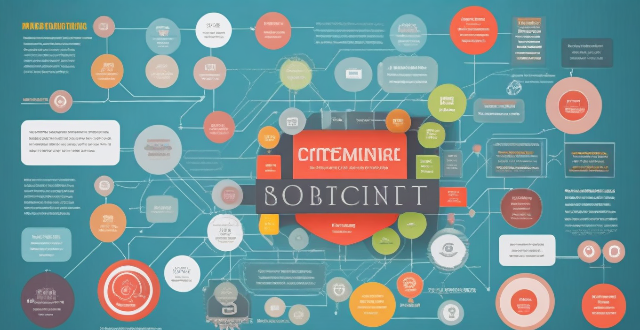Smart contracts can streamline financial transactions by automating processes, reducing costs, and increasing efficiency. They can automate payments and transfers, act as escrow services, create loan agreements, streamline insurance claims, and facilitate trading and exchanges of financial assets. As blockchain technology evolves, we can expect more innovative uses for smart contracts in the financial industry.

How can smart contracts be used to streamline financial transactions?
Smart contracts have the potential to revolutionize the financial industry by automating and streamlining various financial transactions. Here's how:
1. Automated Payments and Transfers
Smart contracts can automate the process of making payments or transferring assets between parties. This eliminates the need for intermediaries, reducing costs and increasing efficiency. For example, a smart contract could automatically send rent payments to a landlord on a specific date each month without the need for manual intervention.
2. Escrow Services
Smart contracts can act as escrow services, holding funds until certain conditions are met. This ensures that all parties involved in a transaction are held accountable and that the terms of the agreement are followed. Once the conditions are met, the funds are released automatically.
3. Loan Agreements
Smart contracts can be used to create loan agreements between borrowers and lenders. The terms of the loan, including interest rates and repayment schedules, can be programmed into the contract. The contract will then automatically distribute payments to the lender and deduct them from the borrower's account.
4. Insurance Claims
Smart contracts can streamline the process of filing insurance claims. The contract can automatically verify that the conditions for a claim have been met and distribute the payout to the insured party. This reduces the time and effort required to process claims and minimizes the risk of fraud.
5. Trading and Exchanges
Smart contracts can facilitate trading and exchanges of financial assets such as stocks, bonds, and cryptocurrencies. The contract can automatically execute trades when certain conditions are met, such as when a stock reaches a certain price. This eliminates the need for intermediaries and reduces transaction costs.
In conclusion, smart contracts have the potential to streamline financial transactions by automating processes, reducing costs, and increasing efficiency. As blockchain technology continues to evolve, we can expect to see even more innovative uses for smart contracts in the financial industry.